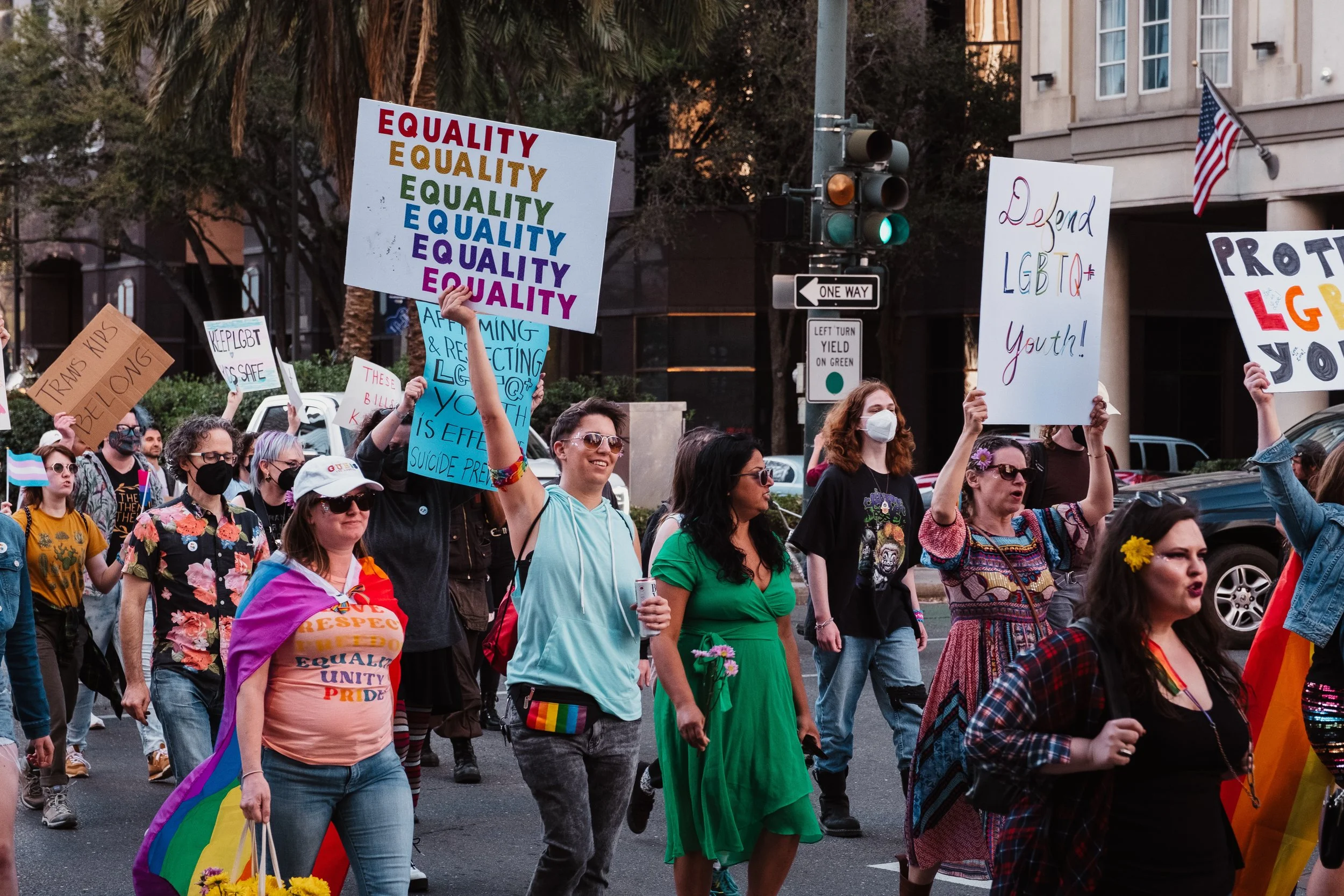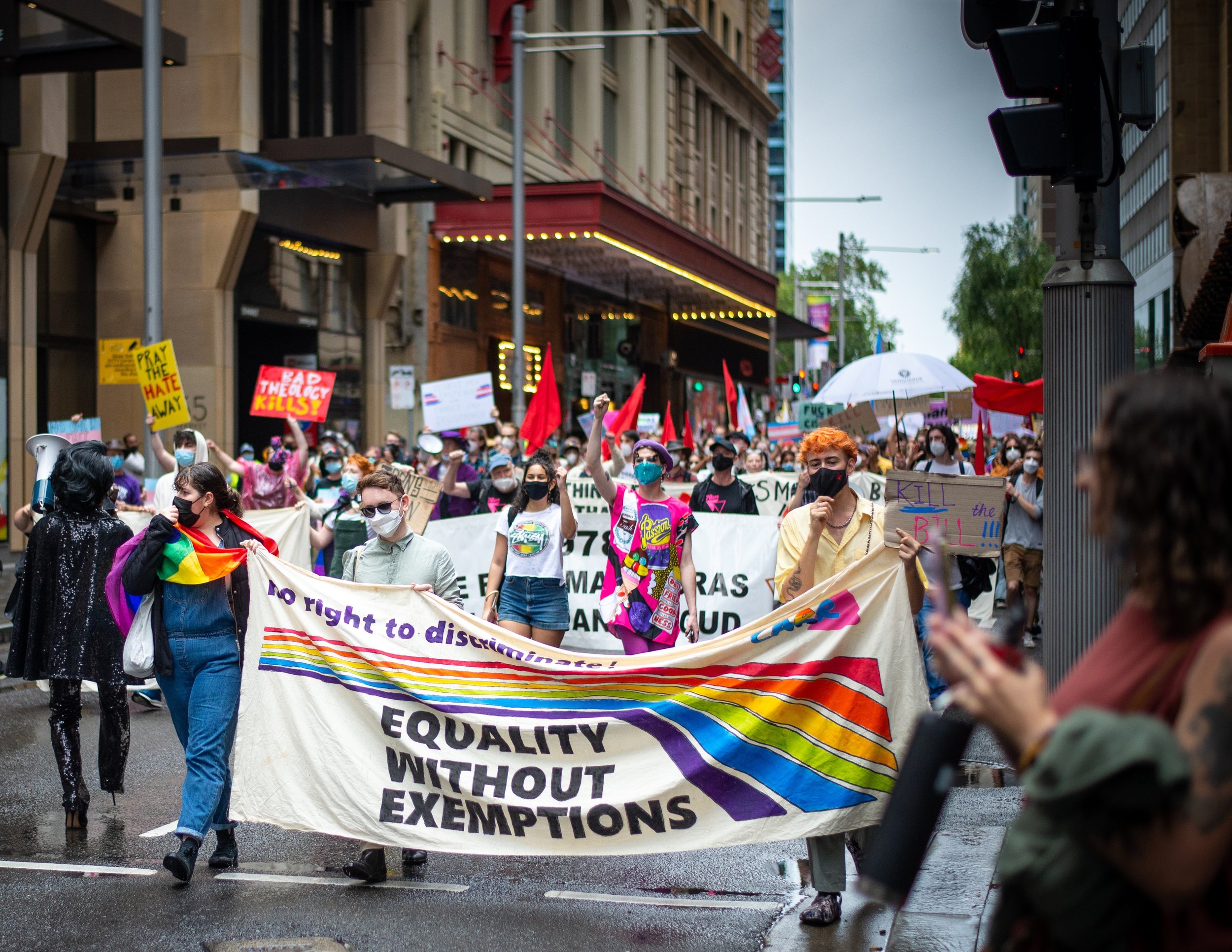Fighting Back Against a New Wave of Attacks on LGBTQ+ Equality
By Christopher F. Stoll, Senior Staff Attorney, National Center for Lesbian Rights
The story of the movement for LGBTQ+ equality over the past half century has been one of remarkable progress punctuated by moments of anti-equality reaction. We have recently come through a period of unprecedented advancement, with same-sex couples achieving the freedom to marry nationwide in 2015 and the United States Supreme Court ruling that LGBTQ+ workers are protected by federal anti-discrimination laws in 2020. Large and increasing majorities of the public now support full legal equality for their LGBTQ+ family members, friends, and neighbors.
Political support for LGBTQ+ freedom and equality has also evolved rapidly. In 1996, Congress overwhelmingly passed, and Democratic President Bill Clinton signed the Defense of Marriage Act, which denied federal recognition to marriages of same-sex couples. By the end of 2022, not only did the federal government fully recognize same-sex couples’ marriages, but a bipartisan majority in Congress passed the Respect for Marriage Act. The Act provides crucial protections by requiring all states to recognize the marriages of same-sex and interracial couples if they were valid in the state where the marriage took place.
At the same time, we are witnessing a new wave of attacks on the legal and legislative advances the LGBTQ+ community has made in recent years.
Every year, hundreds of anti-LGBTQ+ bills are introduced in state legislatures. These range from bills that would criminalize doctors for providing medically necessary health care to transgender youth to bills forbidding teachers from providing accurate information about the contributions of LGBTQ+ people in history—or even displaying rainbow flags or Safe Space signs to let students know they are valued and supported.
Examples of these hostile bills are numerous, and many of them violate the U.S. Constitution. In 2022, Florida enacted a law commonly known as the “Don’t Say Gay or Trans Law.” It bans all public school “instruction … on sexual orientation and gender identity” for K through 3rd grades and limits such instruction for later grades. The law is vague and has led to widespread fear, confusion, and censorship in Florida schools. For example, after the law passed, a memorandum from the Orlando school district included guidance that discouraged teachers from having pictures of same-sex partners on their desks. Similarly, the Miami-Dade school board voted against recognizing LGBTQ+ History Month.
Many of these new laws target transgender people, especially young people. In 2022, Alabama enacted a law criminalizing doctors simply for following established medical standards of care in providing essential health care to transgender youth.
Already in 2023, more than 100 bills have been introduced or proposed, including bans on essential health care, bans on discussion of LGBTQ+ people in schools, and even bills that would restrict drag performances.
In addition to state legislatures targeting LGBTQ+ people with hostile legislation, anti-LGBTQ+ legal organizations have launched a new wave of lawsuits that attempt to use the courts to chip away at the gains the LGBTQ+ community has worked so hard to achieve. Emboldened by a more conservative federal judiciary, well-funded groups have filed lawsuit after lawsuit with the goal of dismantling the progress the community has made.
Over the past decade, anti-LGBTQ+ legal groups have challenged many laws created to protect LGBTQ+ youth from the dangerous and discredited practice of conversion therapy—practices by licensed therapists that claim to “cure” LGBTQ+ young people by changing their sexual orientation or gender identity.
The medical community has long recognized that these practices do not work and can lead to devastating harm for youth—including depression, substance abuse, and a vastly increased risk of suicidality. Thanks to numerous survivors of conversion therapy who have told painful stories of how they were harmed, twenty-five states, the District of Columbia, Puerto Rico, and more than 100 local governments have taken legislative action to protect youth from these damaging practices. Further, these laws have been repeatedly upheld by the federal courts since 2012.
Now, anti-LGBTQ+ groups are attempting to reverse the tide and overturn conversion therapy laws nationally. This battle is far from over. Anti-LGBTQ+ groups are hoping to bring conversion therapy laws before the United States Supreme Court, with the goal of eliminating these critical protections for LGBTQ+ youth nationally.
About National Center for Lesbian Rights (NCLR)
National Center for Lesbian Rights (NCLR) is a 2022 grantee of the Barbara McDowell Foundation whose grant-funded case defended Washington state’s conversion therapy law against a new legal challenge. On September 6, 2022, NCLR received a favorable decision from the United States Court of Appeals for the Ninth Circuit. The decision compellingly detailed the important interests advanced by these life-saving laws in protecting the health and well-being of minors. The decision resulted in a request for rehearing en banc, which was denied on January 23, 2023.




